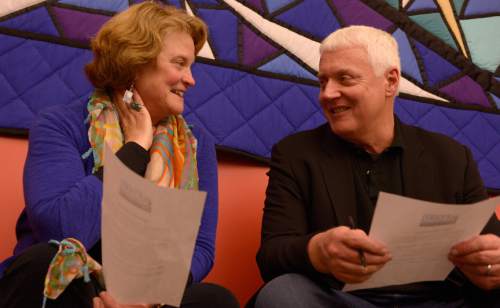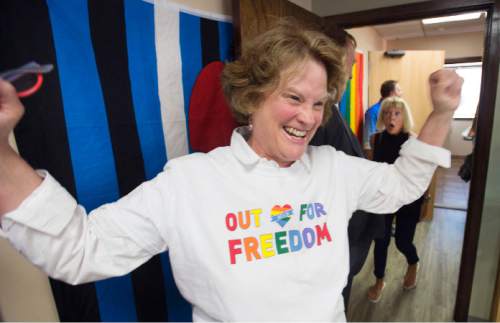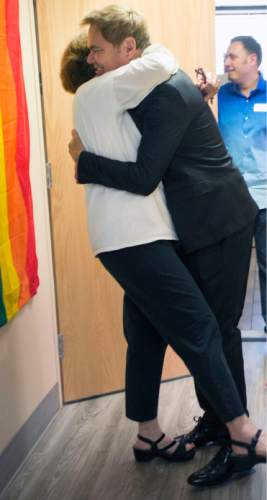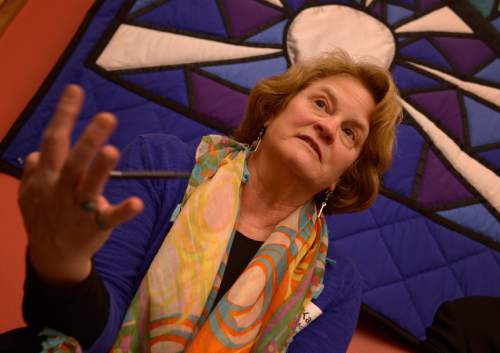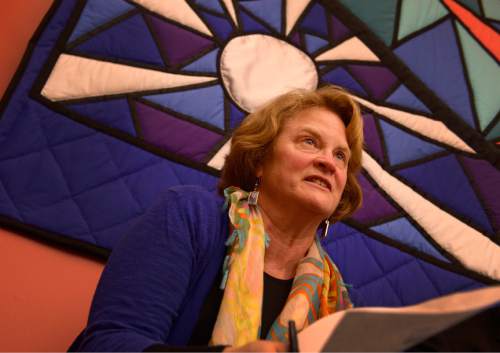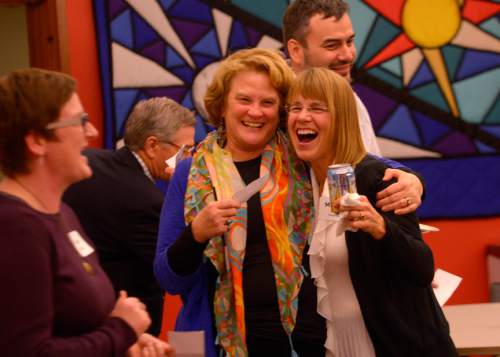This is an archived article that was published on sltrib.com in 2016, and information in the article may be outdated. It is provided only for personal research purposes and may not be reprinted.
In the wake of the 9/11 terrorist attacks on New York's World Trade Center towers, Karen McCreary started thinking about doing more.
"I just thought, I hadn't done enough to help the world," said McCreary said, who was raising a house full of boys and working as attorney for the University of Utah.
Five years later, she got her chance, when the Utah chapter of the American Civil Liberties Union offered McCreary a job as its executive director. "It just matched so many things that I really believed in and cared about," she said. "I wanted to be able to make Utah a better place. It sounds trite, but I wanted to be able to, as a leader of an organization, direct change, not just be reactive."
On Sunday, McCreary is expected to announce plans to retire from the ACLU later this year, to place more focus on the needs of her family.
Her departure, which won't come until a new director is in place, follows nine years of unprecedented growth for the agency which works to preserve the civil liberties of all Utahns.
"To me, it's really felt like a privilege," McCreary said Friday, as the ACLU's board gathered in downtown Salt Lake City for a goal-setting weekend retreat. "I've never been bored."
The first challenge, McCreary recalled, came just three weeks into her new job, when federal agents raided a meat processing plant near Logan and swept up undocumented workers.
That launched the ACLU's involvement in immigration issues, including working with the Utah Coalition of La Raza and the U.S. Department of Justice to challenge a state immigration law that, among other things, would have required local police to confirm the immigration status of anyone arrested for a felony.
The law was partially gutted by a federal judge and then further diluted through a settlement with the Utah Legislature in 2011.
McCreary was just getting started.
On her watch the ACLU has grown from an organization with a staff of three to one with nearly 10 and a budget — funded solely though donations — that has doubled to about $900,000. McCreary also expanded the organization's board to include people from across the state.
The number of ACLU-generated lawsuits has also grown, sometimes producing results not all Utahns liked.
In 2006, there were just four active suits, but under McCreary's leadership, the organization has resolved 22, including :
• Challenges to multiple cities' ordinances that restricted protests and free speech
• The Davis County School District's effort to restrict access to a book featuring a lesbian family
• A police sweep at West High School in Salt Lake City targeting suspected gang members
• And Utah's refusal to recognize the same-sex marriage performed in December 2013 after a federal judge deemed the state's ban on such unions unconstitutional
On Friday, board members lauded McCreary for her vision in moving the ACLU from an organization that once just reacted to community problems to one that is engaged in issues and helping to shape solutions.
"[The ACLU's] job is to challenge power and make sure that power behaves accordingly," said Russell Fericks, an attorney and board member. "With Karen, the ACLU has become less strident and more engaged in a mutual effort to achieve a mutual standard. That's been a very positive thing."
That's led to the formation of at least five community coalitions which address issues like criminal justice reform, racial profiling by police, conditions in Utah's prisons and outreach to the state's Muslim community.
Fericks also said McCreary has a talent for recruiting top-notch staff and then getting out of their way.
"She coordinates very carefully, but she doesn't control the agenda," he said. "She empowers people."
Michael Weinholtz, who took over as board chairman in January, also praised McCreary's leadership skills and her work in fostering community partnerships and relationships.
"I think its great because other nonprofits in the area know they can count on the ACLU to support them," Weinholtz said.
Weinholtz said the board will appoint a search committee to find McCreary's successor and is in the process of setting agency goals for 2016 that will help shape the criteria for the job.
McCreary said she plans to stay with the ACLU until a new director is hired and will help the appointee transition into the job.
"I have confidence that things will keep going," McCreary said. "My hope is that [the ACLU] will continue to be a really vibrant, strategic organization and that it will continue to be engaged in all those places that are at the margins."


